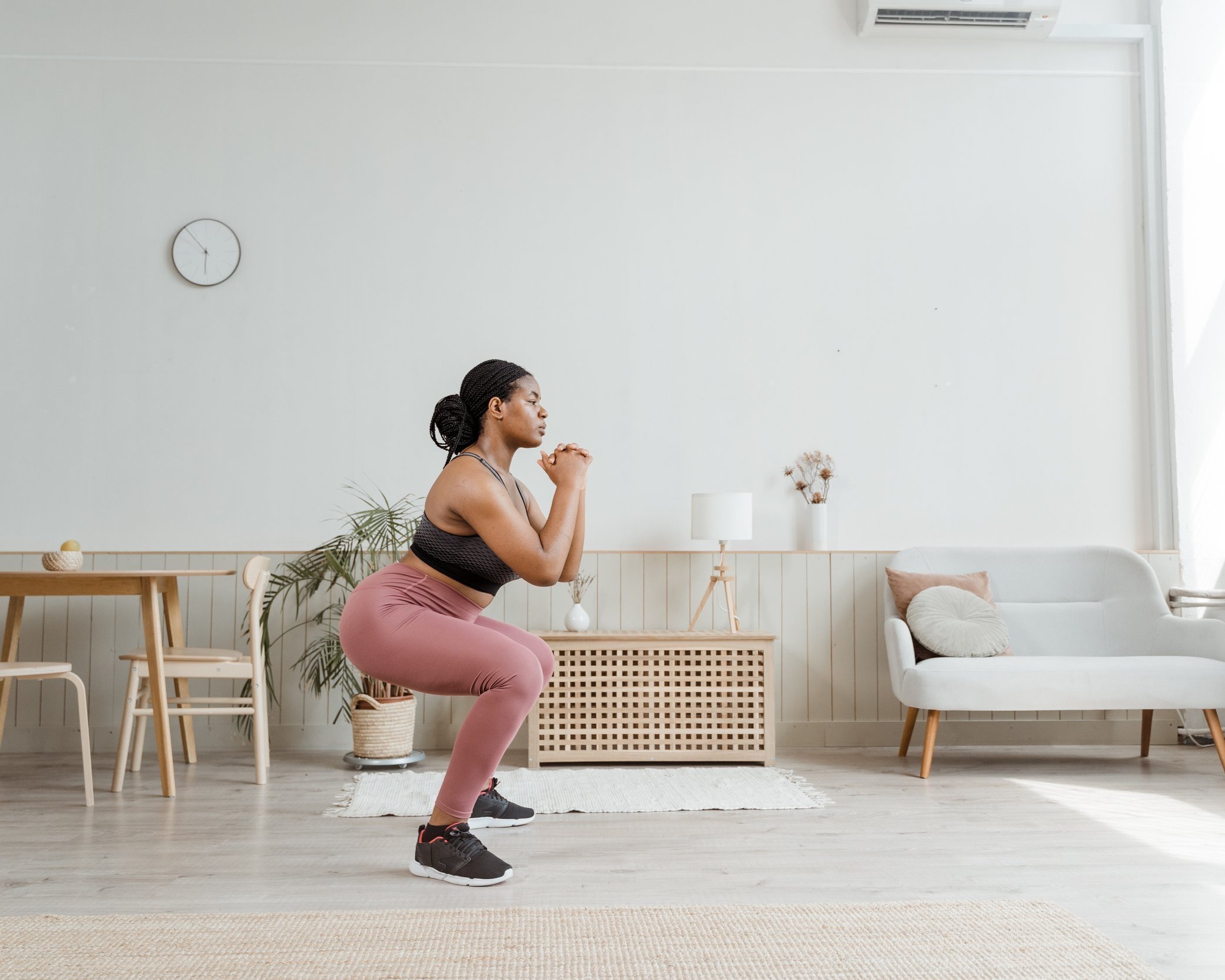8 Common Questions I Get From Pregnant Clients About Exercise
Exercising regularly while pregnant can help reduce your risk of pregnancy complications and ease pregnancy discomforts.
It’s always a good idea to speak to your doctor before you start any workout routine. Once you get the clearance from them, try to get at least 30 minutes or more of moderate exercise three to four days a week.
Remember, your goal during this time is to keep up your pre-pregnancy fitness, not to train like you’re auditioning for American Ninja warrior. Any movement and light moderate exercise is going to be beneficial for you.
I’ve been fortunate to have had the opportunity to work with hundreds of pregnant women in person and through my online fitness program over the past decade, but I still get a handful of common questions moms-to-be ask me which is why I wanted to answer eight of the most common questions I get asked about exercising during pregnancy.
1. Why should I exercise during pregnancy?
Regular exercise is great for just about everyone – including expecting moms and their developing babies. For moms, daily activity can help ward off high blood pressure, postpartum depression and gestational diabetes. Plus, exercise can help alleviate back pain, pelvic pain, general discomfort, urinary incontinence – all the little joys that come with carrying the miracle of life – can be eased with regular exercise. Being fit and strong will help support a growing belly, push the baby out during childbirth more efficiently and then carry a growing baby in your arms. Exercising also helps with elevating one's mood and energy throughout the day.
2. Which exercises are best for pregnant women?
The best; non high impact thing you can do to get regular exercise is walking because it’s great for people who hadn’t been exercising prior to pregnancy. Other great types of workouts can include:
Swimming ( the buoyancy is a friend to pregnant women)
Stationary cycling
Weight lifting
Rowing
Yoga
Jogging
The key is to combine aerobic exercise with strength training.
3. Which exercises should I avoid?
Hold off on scuba diving and horseback riding while pregnant (a reasonable request, right?), and for good measure, avoid hot yoga.
You want to avoid exercises that can lead to abdominal trauma. That means no competitive ball sports or contact sports, downhill skiing, gymnastics, water-skiing, surfing or high-risk road biking.
4. How much exercise should I be getting a week?
Thirty minutes a day, most days a week is a good measure.
For people who haven’t exercised in months (or years or decades) prior to pregnancy, this may seem like a formidable demand. But remember, this doesn’t need to be 30 continuous minutes of wind sprints or squat jumps. Start slowly. Take breaks. Ease into 30 minutes of walking. You can break up those 30 minutes into 10-minute segments throughout the day too.
For women who already exercise regularly, I recommend continuing your normal routine. Avoid and modify any ab exercise that requires you to crunch up or lie completely flat on your back for longer than three minutes.
5. Should I exercise if I'm at high risk?
Always consult your doctor if you are high risk.
6. Is physical activity safe for all pregnant women?
No. Not every woman should exercise during pregnancy. Don’t exercise if you have:
Heart problems that affect blood flow
Preterm labor. Preterm labor is labor that happens too early, before 37 weeks of pregnancy.
An incompetent cervix. This is a cervix that opens too early, before the baby is full term.
Lung disease.
A pregnancy with twins, triplets or more (also called multiples). Being pregnant with multiples increases your chances for having preterm labor.
Vaginal bleeding during the second or third trimesters (from 4 months of pregnancy on) that doesn’t go away.
Ruptured membranes (when your water breaks)
Preeclampsia. This is a condition that can happen after the 20th week of pregnancy or right after pregnancy. It’s when a pregnant woman has high blood pressure and signs that some of her organs, like her kidneys and liver, may not be working properly. Some of these signs include having protein in the urine, changes in vision and severe headache.
Placenta previa. This is when the placenta sits low in the uterus and covers.
7. Does pregnancy change how your body responds to exercise?
Yes. During pregnancy, your body changes in many ways. When you’re being active, you may notice these specific changes:
Breathing. You need more oxygen when you’re pregnant, especially in your second and third trimesters. Your growing belly puts pressure on your lungs, making them work harder in a smaller space. You may even find yourself feeling short of breath at times.
Heart rate. Your heart works harder and beats quicker during pregnancy to get oxygen to your baby. You may have less energy for exercise.
Body temperature. You start sweating sooner than you did before pregnancy. To protect yourself and your baby from overheating, your body starts sweating at a lower body temperature.
Balance. As your body changes during pregnancy, so does your sense of balance. You may notice that you lose your balance more easily.
Joints. Your hormones are at high levels during pregnancy. This can make the tissues in your body more relaxed. Be careful not to over stretch.
8. When should I stop exercising?
I’ve trained women up to the week before they gave birth but this totally depends on you! Your intensity will be modified as you get closer to your due date and you will also most likely need longer rest times between sets.
As far as when you need to stop working out, that depends on you and your comfort level. Most important thing to do is listen to your body. Monitor the effect of each activity and adjust the regimen if necessary as the pregnancy progresses.













